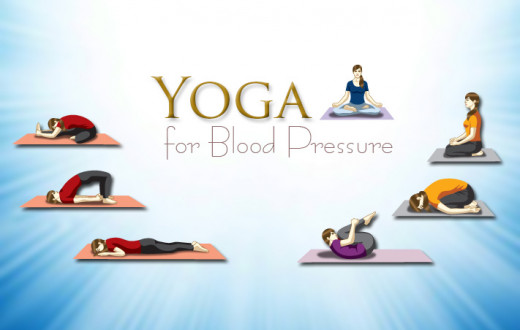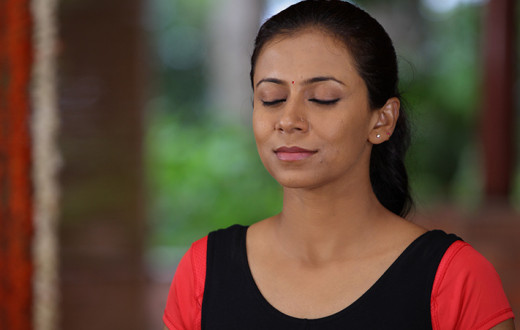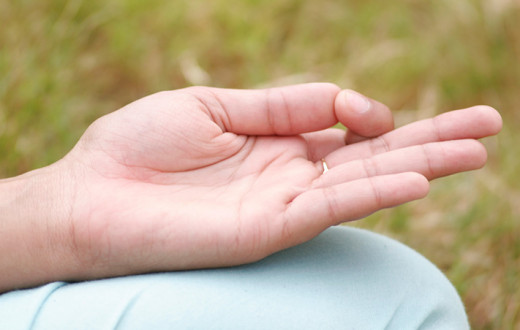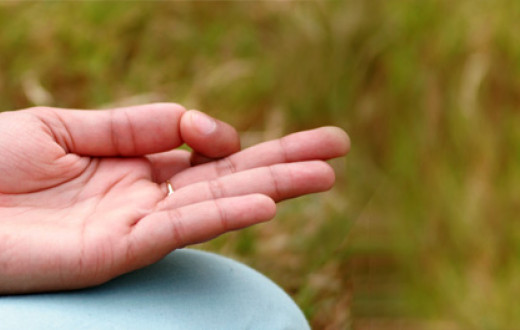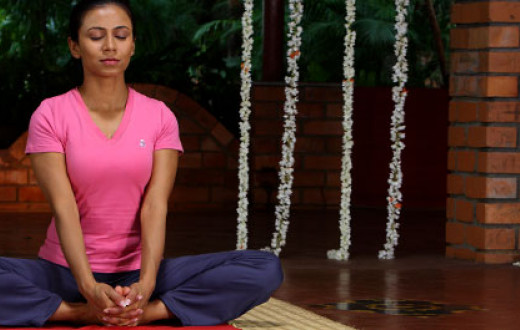Patanjali Yoga Sutra Knowledge Sheet 62
Contd. from knowledge sheet 61
“Prakcshakriycsthitishelam bhutendriyatmakam bhugapavargcrtham drushyam’’.
This seen world is illuminating. It conveys you a message. It gives you an idea of how great the consciousness is. Every aspect in the world is an expression of God. Everything is active. “Prakasha” means manifesting. Everything is manifested from the consciousness. We manifest, flowers come out, so too Sudarshan Kriya. Everything in this universe is dynamic. It is not static. There is nothing that is static. Even though the mountains appear to be static, they are not static. They are all dynamic. Every atom is dynamic.
"Sthiti". They all undergo certain stage of evolution. Everything has a stage, has a state. Everything is governed by certain principles and certain qualities. "Bhutendriyatmakam". The entire creation is made up of five elements. Five elements, five sense organs, five organs of perception and five organs of action. These are the ten organs. The entire creation is endowed by these ten. The mind is also a part of the creation. "Bhoga apavargartham." This entire creation is there to give you pleasure and relief. Whatever gives you pleasure will also give you relief. Do you see what I am saying? Otherwise the pleasure becomes a pain.
It is like say, there are three apple pies. One, two, three apple pies, you love it. You will do anything in your life to have an apple pie or gulab jamoon. Okay you have it. But one, two, three, four and then the fifth one already becomes a little too much and then seven, eight, twelve, thirteen. The same thing which gave you pleasure is making you suffer. If you are forced to eat twenty apple pies, you will hold your head and say “Oh! my God. I want relief from this, I want to get away from these things. Enough is enough. I cannot hold any more”.
Same thing with music. Okay you like beautiful music. How long can you enjoy music? One hour, two hours, some of us twenty four hours music, seven days a week! You cannot breathe. You shut it off! That wonderful music which gave you so much pleasure, if its over done, that brings you pain. So that has to give you relief also. Do you see that? The entire creation gives you enjoyment and liberation and relieves you. You have to get yourself liberated from all this at some time or the other. Otherwise that becomes pain.
He goes on describing how there are grades in this. Sattwik, rajasic and tamasic. The tamasic here is more dullness. Rajasic is more activity. Sattwik is more light and more freedom. Like if you take food which is natural, if you take apple pie, it is good for health and gives you pleasure. But if you go into drugs, it just entraps you. It seems to give you pleasure, but only gives you pain, only suffering and it is hard to get out of it. So that is tamasic. Tamasic, rajasic, sāttwik. The whole creation is made up of three gunas, three natures. Certain food you take makes you more dull, certain foods make you more agitated, active. Everything is from these three different gunas. There are some specialties about it. All these details are there.
“Drashta drushimctraha shuddopi pratycyanupashyaha’’ (II Sūtra 20)
drashta = the self; drushimctraha = consciousness only; shuddaha = pure; api = even though; pratyaya = mixes; anupashyaha = covered by intellect.
“The self is pure consciousness only, but when it gets mixed up with the intellect, it gets covered.”
The self, though it is ever pure, untainted, it is just a witness. But when it becomes one with the buddhi, the intellect, then it gets colored. It appears as though it is colored. Somebody who is stuck with their intellect, they just stick to their thoughts and ideas as though it is their own. They suffer a lot. The self is the centre of the whole creation.
<< The Whole World is Here for You to Enjoy The world is part of the Enlightened One! >>
(This is part of a series of knowledge sheets based on Gurudev Sri Sri Ravi Shankar's commentaries on Patanjali Yoga Sutras.)

